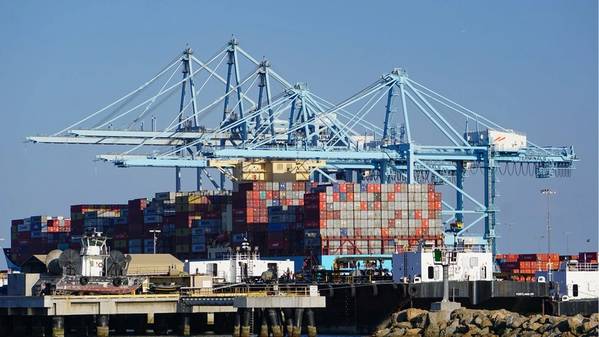
The American Association of Port Authorities (AAPA) has submitted another round of comments to the United States Trade Representative (USTR) office on additional modifications to its proposed Section 301 policy actions.
The AAPA acknowledged the recently announced China trade truce and commends the Trump Administration "for the collaborative approach it has taken to reach an agreement on a one-year suspension of the shipping fees and tariffs stemming from this Section 301 investigation."
All fees and tariffs associated with the Section 301 investigation into China’s maritime and shipbuilding practices have been suspended for one year. These include fees on Chinese-owned, operated, and built vessels; fees on foreign-built vehicle carriers; tariffs on ship-to-shore (STS) cranes; and the proposal to add tariffs to other Chinese cargo handling equipment.
The American port industry is relieved to see these fees and tariffs suspended for one year. This pause will allow the industry to continue delivering the cargo and passengers that power the American economy. “We urge the Trump Administration to continue negotiations to ensure that these policies are not reimposed in one year,” says the AAPA in a statement.
AAPA remained consistent in advocating for America's port industry by reminding USTR of the negative impacts the ports could expect from additional tariffs on STS cranes. The proposal to add new levies on other cargo handling equipment could further compound inefficient cargo movement and port development.
AAPA says the Trump Administration's combination of tariffs and port taxes would mean that "ports have fewer resources available to purchase more expensive equipment. This is far from a prescription for American maritime industry revitalization. Instead, the forecast for future port development is shaping up to be a long, cold winter. With rising costs and shrinking capital resources, ports will likely pause or contract capital improvement plans and wait for better economic conditions."
Alternatively, AAPA proposed three actions the Administration should take to begin the long process of reshoring the domestic manufacturing of cargo handling equipment instead of harmful tariffs:
• Release the U.S. Port Cargo Handling Equipment Demand Study currently under review at the Maritime Administration;
• Pass and sign a big, beautiful Surface Transportation Reauthorization bill with an advanced appropriation of $10.9 billion over five years for the Port Infrastructure Development Program; and
• Reevaluate and restructure tariffs to bypass allied countries like Japan, South Korea, and the European Union, from which ports could acquire cargo handling equipment.
The AAPA is also concerned about a vehicle carrier fee assessed per net ton and targeted coverage fees on Great Lakes Shipping.




